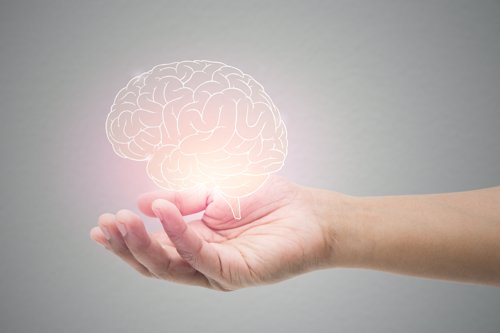
News
The Gut Microbiota & Mental Health
At a time when looking after our mental health has never been more important, we wanted to support and raise awareness of this years’ Mental Health Awareness Week* (18-24th May 2020) by delving into some of the latest research looking at mental health and the bacteria in our guts. Although the vast majority of interventional research exploring the relationship between the gut microbiota or microbiome and mental health has not actually been conducted in humans, there certainly seems to be a growing body of observational data suggesting that the ‘gut-brain axis’ is not something to ignore when it comes to mental health.
Understanding associations and the potential role of the gut microbiome in clinical depression and schizophrenia are just some of the areas of mental health that there have been publications on within this year.

In major depressive disorder, also known more simply as clinical depression, a recent systematic review and meta-analysis1 found that observational studies have shown significant differences between the gut microbiota of patients with major depressive disorders compared to non-depressed controls; those with major depressive disorders have significantly lower numbers of several taxa at the family and genus levels, specifically family Prevotellaceae, genus Coprococcus, and Faecalibacterium.1 Interestingly, the butyrate-producing Faecalibacterium and Coprococcus bacteria have also been associated with higher quality of life indicators in a previous observational cohort study.2 Furthermore, although limited by the numbers of studies, interventional studies with probiotics have shown improvements in depressive signs and symptoms compared to controls.1 However, across both observational and interventional studies, the effects of diet and pharmacotherapy are not always considered yet are likely to be important confounding factors in this field of research.1
A recently published metagenome-wide association study, exploring faecal microbiome of 90 schizophrenia patients free of medication and 81 controls identified clear distinctions in microbial species between the two populations.3 Furthermore, the researchers could then identify key microbial functions potentially associated with schizophrenia including differences in short-chain fatty acids synthesis, tryptophan metabolism and synthesis/degradation of neurotransmitters.3 However, this data is observational and thus has its limitations in understanding whether these differences are a cause or effect of schizophrenia.
Stepping away from pre-existing mental health conditions, there is also a great deal of interest in supporting the mental health of healthy populations and limiting the impact of lifestyle factors such as stress on overall health and well-being.
In a recent randomised, double-blind, placebo controlled, multicentre trial conducted in 63 healthy older adults (≥ 65 years) in Korea, Kim and colleagues investigated the effects of consuming a probiotic containing Bifidobacterium bifidum BGN4 and Bifidobacterium longum BORI (1 × 109 CFU/d) on cognition and mood.4 Following a 12-week intervention, the probiotic group showed a significant improvement in mental flexibility test and stress scores compared to placebo. The researchers also analysed the gut microbiota of the participants using 16S rRNA sequencing and found that the probiotic consumption led to significant changes to the gut microbiota within these older adults.4
Also published earlier this year was a randomised controlled trial in 230 pregnant women with obesity, investigating whether probiotics (Lactobacillus rhamnosus GG and Bifidobacterium lactis BB12, at least 6.5 × 109 CFU) would improve maternal mental health outcomes during pregnancy (at 36 weeks gestation).5 However, in this intervention the probiotics did not improve mental health outcomes compared to controls; depression scores remained stable in both groups, mental well-being scores did not differ between the two groups, and anxiety and physical well-being scores worsened in both groups.5
As fascinating as all this research to date is, there is so much more to be understood about how the bacteria in our guts have a role to play in our mental health; in both healthy populations and those with pre-existing mental health conditions. For now, we know for certain that eating a healthy diet can help to protect your mental health; eat regular meals, get the right balance of fats, choose more wholegrains, fruits and vegetables, include some protein at every meal, include oily fish in your diet and drink enough fluid.6 Perhaps one day this dietary advice to support mental health will also include strategies to modulate the gut microbiota, such as probiotics and prebiotics.
*Mental Health Awareness Week is hosted by the Mental Health Foundation and the theme for this year is Kindness. Find out more by visiting https://www.mentalhealth.org.uk/campaigns/mental-health-awareness-week
References
1. Sanada et al. (2020) Journal of Affective Disorders. 266:1-13.
2. Valles-Colomer et al. (2019) Nature Microbiology 4, 623–632.
3. Zhu et al. (2020) Nature Communications. 11(1):1612.
4. Kim et al. (2020) The Journals of Gerontology Series A Biological Sciences and Medical Sciences pii: glaa090.
5. Dawe et al. (2020) Scientific Reports. 10:1291.
6. British Dietetic Association (2016) Depression and Diet: Food Fact Sheet. Available from: https://www.bda.uk.com/resource/depression-diet.html [Accessed 8th May 2020].
15/05/2020